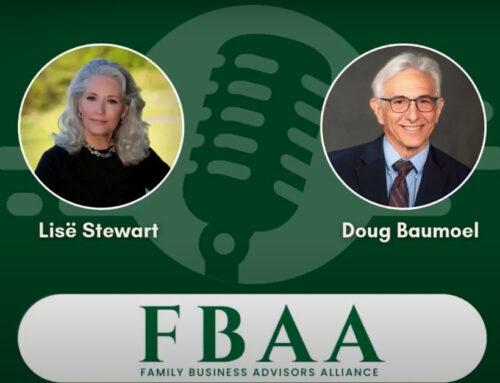Recognizing Passive Conflict in Enterprising Families
7 Ways Passive Conflict Threatens Family Cohesion
Estimated read time: 3 mins
In family systems where wealth, legacy, and decision-making are intertwined, tension doesn’t always speak loudly. It often has an insidious quality, showing up in patterns that are easy to overlook or explain away, but its seeming negligibility makes it that much more of a threat to family dynamics. Just because something is difficult to name doesn’t mean it isn’t shaping the room.
We call this “Passive Conflict”. Families can operate for years with unresolved dynamics humming beneath the surface. Sometimes the stakes are too high to risk open conflict. Other times, past wounds, power differences, or deeply ingrained roles make certain conversations feel impossible. And so, tension goes underground.
Here are a few red flags that often point to unspoken tension in enterprising families:
1: Decisions get delayed (or rushed)
When timelines feel unusually stretched or, conversely, decisions are made hastily with little engagement, it can signal discomfort in the process. Delay may mask avoidance. Speed may mask control. In either case, the pattern speaks.
2: Not everyone is in the room, or fully heard
Repeated absences, minimal engagement, or one-word responses in family meetings often indicate more than disinterest. Disengagement can be a protective response when someone feels sidelined, unsafe, or unheard.
3: There’s a “good child” / “difficult child” dynamic at play
When one family member is regularly deferred to while another is subtly dismissed or framed as the problem, it’s worth asking: What larger story is being told here? And who gets to tell it?
4: Financial matters carry extra emotional weight
It’s natural for money to stir up emotion. But if conversations about distributions, support, or responsibilities regularly lead to confusion, silence, or volatility, it may point to deeper beliefs and loyalties that aren’t being named or are misaligned.
5: Family history gets edited
When certain stories are polished, skipped over, or only shared in private, it’s often an attempt to protect the family (or specific members) from discomfort. But it also limits the family’s ability to learn and grow from its own lived experience and reframe challenging stories into defining moments in the family’s legacy.
6: There’s a feeling of walking on eggshells
Even in seemingly “functional” family systems, there can be topics everyone knows not to touch. Salvador Minuchin (creator of Structural Family Therapy) describes these as “norms” and “rules” in a family system. Each family has its own set of norms and rules, but avoidance disguised as politeness or maturity threatens family cohesion. It often signals a fear that honesty will come at too high a cost.
7: Conflict shows up sideways
Passive-aggressive comments, sarcasm, triangulation, or under-the-table alliances often arise when direct disagreement feels unsafe. These indirect forms of expression may feel safer, but they create lasting damage to trust and cohesion.
Recognizing these signals doesn’t mean something is broken. It is a proverbial “check engine light” signaling that the family system is asking for care.
Unspoken tension is often less about dysfunction and more about unacknowledged pain, role confusion, or values misalignment. These are natural in any system, and especially so in families where love and money coexist.
The real opportunity isn’t just to “fix” tension. It’s to understand what it’s pointing to and to address it in ways that strengthen both the family and the enterprise. At Continuity, we help families interpret these signals, uncover their systemic roots, and design governance and relationship structures that allow the enterprise, and the family, to thrive together across generations.
Stay in the Know
Get our latest articles, tips, and insights delivered straight to your inbox.
Share this Insight, choose your platform!
About Us
Continuity Family Business Consulting is a leading advisory firm for enterprising families. Using a full suite of service capabilities, we help families prevent and manage the single greatest threat to family and business continuity: conflict. It is through this lens that we advise our clients and build customized strategies for succession planning, corporate governance, family governance, and more. We help families improve decision making, maximize potential and achieve continuity. To inquire, contact us.












